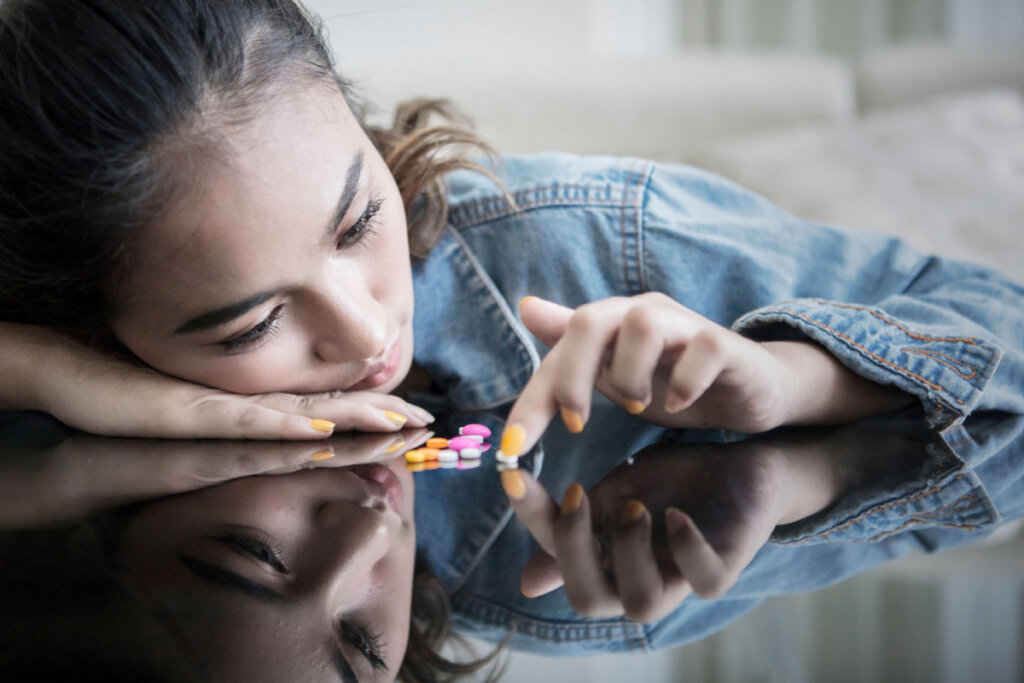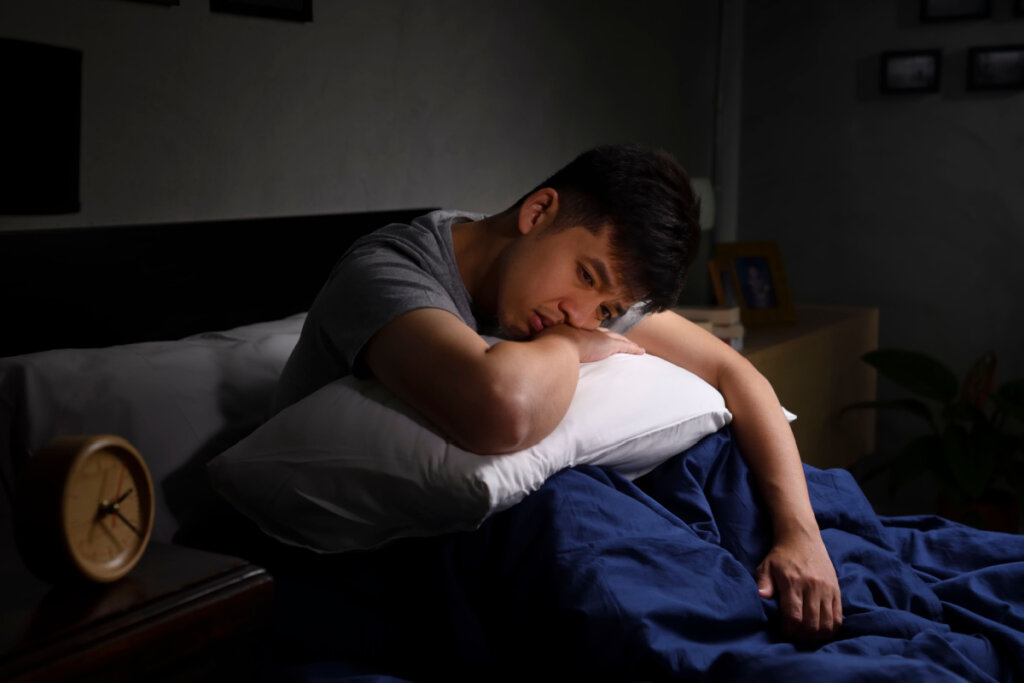Anxiolytics and Alcohol: A Dangerous Combination


Written and verified by the psychologist Sara González Juárez
Today, anxiolytics are one of the most frequently prescribed psychotropic drugs. In fact, they’re often obtained without even going to a mental health specialist. This, together with the normalization of alcohol intake, means that both types of substances are frequently combined. At times it’s due to negligence and, at others, pure carelessness.
However, mixing anxiolytics and alcohol poses great health risks, both in the short and long term. Indeed, as both drugs depress the nervous system, the risks increase exponentially when combined. Among other consequences, this can provoke respiratory arrest or coma.
We’re going to explain in more detail why you shouldn’t drink alcohol when taking anxiolytics. This is an extremely important subject. You shouldn’t imagine that, just because both substances are so commonplace, they’re not harmful to your health.

Effects of anxiolytics and alcohol on the nervous system
The first thing you should know is that alcohol and anxiolytics are both depressant drugs for the nervous system. It means that they slow down or decrease the activity of the central nervous system. This is beneficial in anxiety disorders, as they’re characterized by its overactivation.
Taking anxiolytics helps to achieve a feeling of relaxation and to reduce symptoms such as catastrophic thoughts.
Alcohol also performs inhibitory functions of the nervous system, but in a different way. As intake increases, the effects range from disinhibition of behavior to ethylic coma (overdose). It’s due to the affectation of the brain areas in charge of vital processes.
What happens when you mix anxiolytics and alcohol?
Although anxiolytics are becoming increasingly common, they can’t be compared to the normalization of alcohol in everyday life. In fact, many people are unwilling to give up its use. On the other hand, for some, it’s such an ingrained part of their daily routine that they don’t take into account its interactions with other drugs. When alcohol is mixed with anxiolytics, the effects are as follows:
Predisposition to accidents
Mixing anxiolytics and alcohol affects motor control functions, such as coordination and balance. It also has effects on concentration, alertness, and memory. For this reason, accidents such as falls, cuts, or blows are more frequent.
Taking benzodiazepines and alcohol together is associated with a 7.7-fold increase in the risk of suffering a traffic accident.
Potentiation of depressant effects
In addition to both substances being inhibitory substances of nervous activation, ethyl alcohol has the capacity to potentiate the effect of benzodiazepines. These are one of the most widely used groups of drugs for the treatment of anxiety.
This agonist effect increases the risk of respiratory arrest or a comatose state, because of the involvement of the associated nerve centers. It’s due to pharmacokinetic action which increases the concentration of the two substances in the tissues.
Behavioral disturbances
While it’s often said that we drink to forget, alcohol makes the feelings associated with memories become more intense. This, with the addition of the disinhibition of behavior, makes people more active. Moreover, they may be more violent in the face of any current conflict.
These unresolved problems, added to the influence of anxiolytics and the disinhibitory effect of alcohol, can make anxiety grow to the point of behavior typical of a nervous breakdown. In turn, this behavior escalates existing conflicts. It can also make new ones appear, creating a worsening of the disorder.
Greater rebound effect
Anxiolytics are also prescribed to induce sleep in insomnia sufferers. Others might turn to alcohol to look for the same effect, a product of nervous system depression. However, both substances share the rebound effect. This means that a few hours after they’ve taken effect, the symptoms of nervousness and anguish return with greater intensity.
Therefore, the quality of sleep obtained isn’t good. Indeed, if you mix anxiolytics and alcohol, the rebound effect is much greater, so you don’t sleep at all well. Furthermore, any symptoms of anxiety in the medium term don’t diminish either.

The importance of psychological therapy
The prescription of anxiolytics for anxiety and stress isn’t enough to alleviate the problem. Moreover, alcohol intake is both harmful and dangerous when it becomes chronic. In fact, it’s at this point that the need arises to accompany pharmacological therapies with psychological ones.
Treatments with anxiolytics shouldn’t be extended beyond one year so as not to produce adverse health effects. For example, nystagmus, drowsiness, dizziness, or word articulation problems.
Finally, if you think you might be suffering from anxiety problems, it’s best to eliminate alcohol from your life until you solve it. Remember, although it may seem harmless at first, mixing anxiolytics and alcohol is a decision that’ll not only aggravate your symptoms but will also expose you to life-threatening dangers.
All cited sources were thoroughly reviewed by our team to ensure their quality, reliability, currency, and validity. The bibliography of this article was considered reliable and of academic or scientific accuracy.
- Danza, Á., Cristiani, F., & Tamosiunas, G. (2009). Riesgos asociados al uso de Benzodiazepinas: Benzodiazepine-related risks. Archivos de medicina interna, 31(4), 103-108.
- Mattila, M. J. (1990). Alcohol and drug interactions. Annals of Medicine, 22(5), 363-369.
- Menéndez Arias, E. (2022). Revisión sistemática sobre el uso indebido de benzodiacepinas.
- Reimers, C. E. G., & Fernández, F. S. (2008). Benzodiacepinas, alcohol y deterioro neuropsicológico. Medicina clínica, 130(18), 696-697.
- Tampi, R. R., & Bennett, A. Uso de benzodiacepinas y riesgo de demencia. Informe especial, 6.
This text is provided for informational purposes only and does not replace consultation with a professional. If in doubt, consult your specialist.








